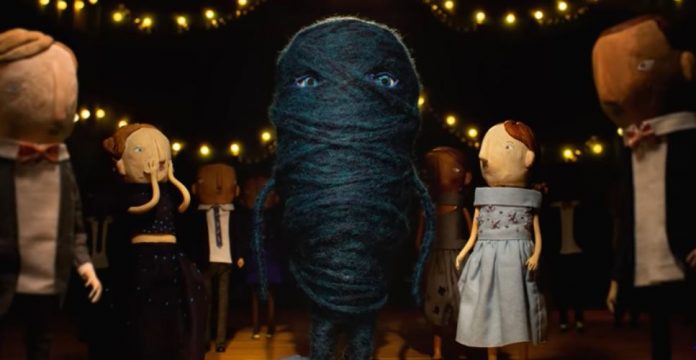Since lockdown measures were first introduced Childline has delivered nearly 43,000 counselling sessions about mental and emotional health, the charity has said.
The NSPCC, which runs Childline, said children have been reaching out for help with issues including loneliness and low self-esteem, as well as concerns around body image, gender and sexuality.
Childline’s volunteer counsellors have heard from many children who, after being cut off from important support networks, shared that they were feeling isolated, anxious and insecure.
Now with a second national lockdown in England underway, Childline is launching a new campaign called Nobody is Normal. It aims to help children understand that lacking confidence, feeling not good enough or that you don’t fit in, is a shared experience.
Developed with young people, the campaign features an animation of a young boy who is struggling with anxiety while desperately trying to appear ‘normal’. Backed by Radiohead’s hit song Creep, it reminds young people that no matter how isolated they feel, they are not alone.
Young people reaching out for help
Childline has delivered higher monthly numbers of counselling sessions about a range of mental health-related issues since March, including low self-esteem, loneliness and worries about the world. Mental health remains the top reason young people get in touch with Childline, making up over a third of all counselling sessions delivered.
Since lockdown measures were first introduced in March, the monthly average number of Childline counselling sessions about eating and body image disorders increased by almost a third (32%) on the pre-lockdown average. Similarly, the monthly average number of sessions about sexuality and gender identity increased by 16% compared with the pre-lockdown average.
While the service has heard that lockdown gave some LGBTQ+ children the confidence to come out to their friends and family, others expressed fears about coming out and some young people were left unable to cope after receiving a negative response.
A 14-year-old child told Childline: “I think I’m transgender and I have no one to talk to. I have always been a tomboy and never fitted in with the girls. I was fine with it for a while, but recently I have become very uncomfortable with my gender and I’m really struggling. I feel stuck, I wish someone can help me.”
A young girl told Childline: “I don’t know if it’s just me being sad because of lockdown, but I’ve been feeling really disgusting in my own body lately. All my friends have clear and beautiful skin with even tones, but mine is spotty and red and covered in freckles. I just feel like I’m always the odd one out.”
‘We are all special and unique’
Throughout the pandemic, Childline counsellors have heard from children who have shared that the crisis has affected their mental and emotional health.
Childline founder Dame Esther Rantzen said: “The pandemic has cut children off from the reassurance any of them need. When young people are facing mental health issues such as anxiety or depression or are struggling with eating disorders or self-harm, they often hide it from their parents and families. A lockdown intensifies stress in all our lives, and the Childline team know from past experience that it has made many children feel especially isolated.
“The Nobody is Normal campaign encourages any children feeling unable to discuss their anxiety and distress to reach out to Childline for support. Many young people are under immense pressure from social media to look and behave like everyone else, but the campaign recognises that we are all individuals, special and unique. If these tough times have caused children to feel an extra level of anxiety, we want them to feel confident to express their fears and share their worries, and know that Childline is still here for them.”
If you are a young person who needs support, visit: www.childline.org.uk
